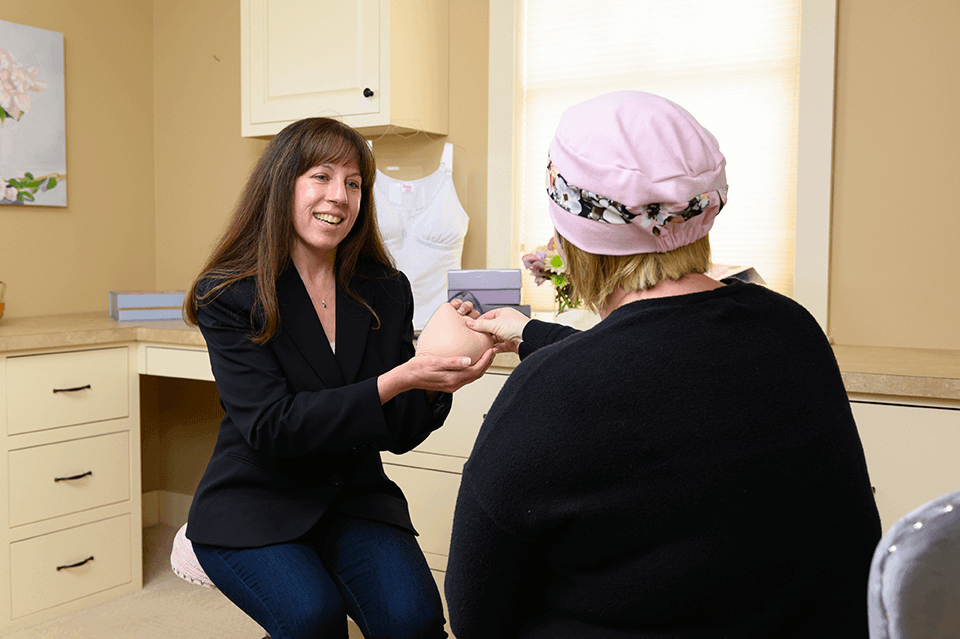This timely article was published on the “BreatCancer.org” website (click here for the actual article). The information was so helpful that we wanted to share it with you.
When your immune system is weakened by cancer treatments, it’s important to take steps to protect yourself against infection. These steps become absolutely critical if your doctor has confirmed that your white blood cell counts are low. During and even after treatment, your body might temporarily be unable to combat bacteria, viruses, fungi, and other germs.
In addition, there can be a long-term risk of infection if you had lymph node removal. Generally, the more lymph nodes and vessels removed, the higher the risk — and the risk doesn’t go away after your incisions heal and cancer treatment ends. You’ll want to take special care to protect the skin of your arm, hand, and upper body (on the same side as your surgery) from any cuts, bug bites, burns, or other injuries. If you do get a cut, apply antibacterial ointment and a band-aid promptly. Infection can increase your risk of developing the condition known as lymphedema, in which lymph fluid “backs up” in the arm, hand, and/or torso and causes swelling and discomfort.
Below are some of the precautions most often recommended for people whose immune systems are weakened by cancer treatment. These can help lower your risk of infection, but they can’t eliminate it completely. If you experience any symptoms of a possible infection, get medical attention right away.
Personal Hygiene
Wash your hands frequently throughout the day with warm soap and water. Always wash your hands before you cook or eat; before touching your eyes, face, or nose; after using the bathroom; after blowing your nose or coughing; and after being in a public place or at a public gathering.
If you don’t have access to soap and water right away, use hand sanitizer.
Brush your teeth with an extra-soft toothbrush in the morning, between meals, and before bed. Ask your doctor if dental floss is OK. He or she may recommend a gentle mouthwash; harsh, alcohol-based mouthwashes should be avoided.
If you have a chemotherapy port, keep the area clean and dry. Ask your nurse for instructions on how to care for the port area.
Clean yourself well but gently after going to the bathroom. Soft moist wipes are a good idea. If you have irritation or bleeding, report it to your doctor or nurse.
Take a warm (not hot) bath, shower, or sponge bath every day. Be gentle on your skin, patting it dry lightly. Pay attention to areas where bacteria gather, such as the underarms and groin area.
Avoiding Cuts or Skin Breaks
Push your nail cuticles back after a shower and keep them moisturized. Don’t cut, bite, or tear them. Avoid manicures or pedicures.
Take care when using knives, scissors, or needles. Use a thimble for sewing.
Wear protective gloves for activities that could injure the skin, and try to find gloves that extend up the arm. These include rubber gloves for cleaning or washing dishes; gardening gloves for planting, pruning, and outdoor chores; and oven mitts for cooking and grilling. You can get chef’s gloves to use when cutting with sharp knives or using a grater.
Try not to touch or scratch pimples, rashes, or bug bites.
To avoid bug bites, use insect repellents that won’t dry out the skin and don’t contain harsh chemical ingredients. Avoid brands that contain a significant amount of alcohol. Any ingredient that ends in “ol” is a type of alcohol.
Moisturize daily to keep skin supple and prevent cracking. Try a gentle lotion such as Eucerin, Moisturel, or Aquaphor.
Try a cream hair-remover (try one labeled for sensitive skin) instead of a traditional razor to remove hair. Be sure to test any hair-removing creams on another area of the body first.
Wear shoes inside and out of the house.
Apply antibiotic ointment — such as Bactroban, Neosporin, Polysporin, or a store-brand ointment with the same ingredients — to any insect bites, torn cuticles, or cuts you notice. Cover cuts with a band-aid and report any signs of infection to your doctor.
Avoiding Germs
Try to avoid large crowds (concerts, crowded movies, school events, airports) as much as you can.
Stay away from people who have a cold, flu, virus, or any sickness you can catch.
Stay away from people who have recently been vaccinated against chickenpox, smallpox, polio, measles-mumps-rubella, or shingles. It’s best to avoid these people for at least 3 weeks after they’ve been vaccinated.
Wear protective gloves when gardening or cleaning, or helping children with the bathroom/diapering. Wash your hands after taking off the gloves.
Try to have someone else pick up after your pet, collect trash, and take out the garbage.
Clean frequently touched items at home and work with antibacterial cleaning wipes. Examples include door handles, phone receivers, keyboards, and TV remotes.
Don’t get into pools, hot tubs, water parks, lakes, or ponds.
Don’t share towels, drinking glasses, or utensils with others in your house without washing them first in hot water.
Practicing Food Safety
Wash your hands well after handling and preparing foods such as meat, fruits, and vegetables.
Wash produce well, even if it comes in a package that says it’s “prewashed.”
Cook meat thoroughly.
Don’t eat foods or drink juices that haven’t been pasteurized. These can include certain kinds of milk, cheese, yogurt, and fruit juice.
Consider cooking vegetables rather than eating them raw.
Refrigerate leftovers promptly.
Do not eat any outdated food.
Avoid foods with mold in them.
Avoid raw sprouts and nuts.
Call us today at (541) 383-8085 to learn more about the care we can provide you during your breast cancer journey!

